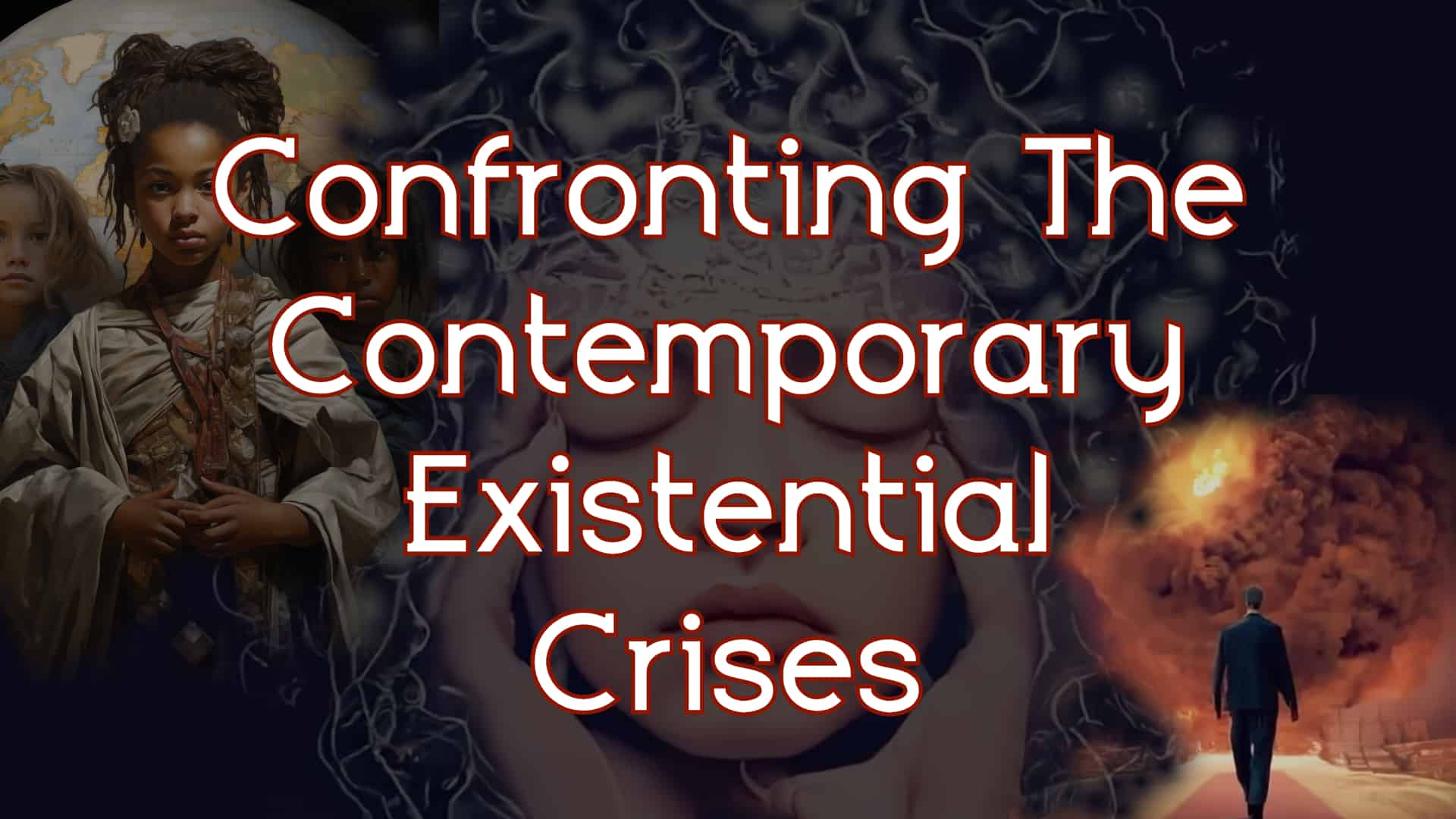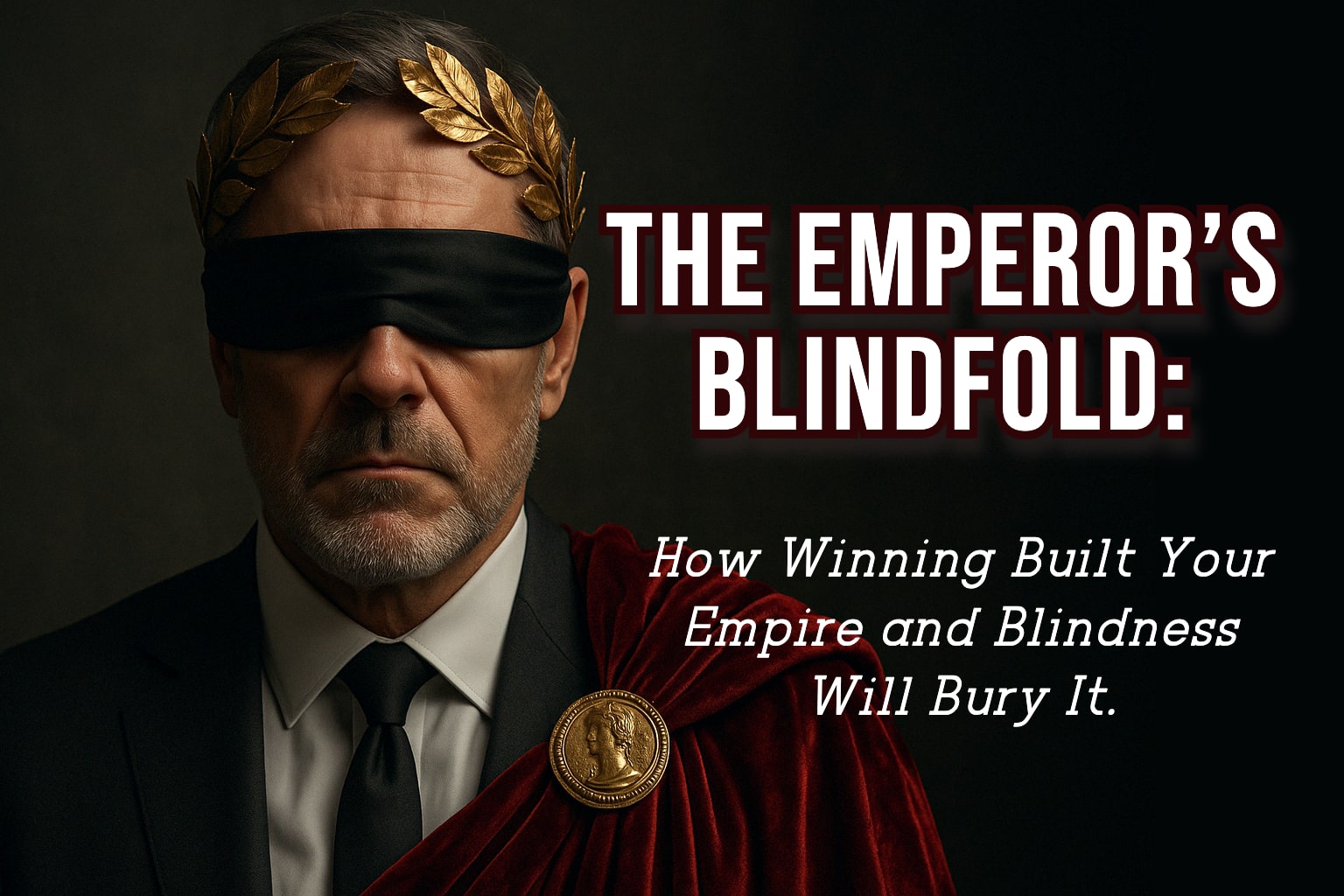Navigating Your Way Through with Emotional Intelligent Leadership and Collective Resilience
In 1951, Alan Watts, a prominent British philosopher, writer, and speaker, released his book “The Wisdom of Insecurity.” He wrote the book because of the prevalent state of anxiety and dissatisfaction that he observed in modern society. Again, this was 1951!
After rereading Watts’ work, it becomes evident that emotional intelligence plays a crucial role in addressing the contemporary state of anxiety and dissatisfaction we face today.
The Current Global State:
Political Polarization and Economic Uncertainty

The increasing complexity of our world:
- the fiercely adversarial political situation in the US
- Russia at war with Ukraine
- Israel
- Palestine
- Canada’s economic decline
- the rise of authoritarian leaders in many parts of the world, from Hungary to Turkey, to India
Rising Movements: Far-Right Ideologies and the Crisis of Confidence
There has been a notable surge in far-right movements in recent years across key European nations such as Austria, France, Germany, Sweden, and now Spain. This trend reflects a growing disillusionment with traditional political frameworks. North America’s ascent of far-right and far-left ideologies mirrors this phenomenon, signaling a broader political polarization.
This shift in the United States and Canada is accompanied by declining public trust in major national and international entities, from healthcare systems to educational institutions, pointing towards a confidence crisis in once-fundamental structures.
The trends above underpin reports and discussions that highlight widespread concern over the efficacy and integrity of these institutions, urging a reevaluation of their roles and impacts in contemporary society.
Systemic Challenges: Food Security and Economic Stability

Emerging challenges to our food systems and economic stability are evident. Increasing threats to agricultural sustainability and a deepening housing crisis have put middle-class families in precarious living situations. This situation underscores the critical need for systemic solutions to these expanding global concerns.
Amidst the well-documented ecological, economic, and geopolitical upheavals, subtler crises of loneliness, addiction, and existential anxiety quietly erode our societal fabric. Notably, a pervasive sense of uncertainty has led Gen Z to question the future, influencing major life decisions, such as starting families.
Psychological Meta-Crisis: A Tsunami of Insecurity
We are in a multifaceted global and personal psychological meta-crisis! Or, to put it another way, we’re in a tsunami of insecurity, and it seems evident that things can not continue as they are.
As Alan Watts asks: Can these insecurities lead to wisdom?
There is, but to do so, we must examine how we have identified as collective societies.
The essential philosophy of the American Dream centers on the principles of individualism and accountability, suggesting that personal effort and responsibility pave the way for individual and societal prosperity.
From Insecurity to Wisdom: Reevaluating the American Dream
The US has exported these ideals globally and become the most powerful nation. However, are those systems still working? Evaluating their effectiveness in addressing today’s challenges, particularly the psychological meta-crisis is crucial. Historical perspectives on any empire (especially the American one) offer valuable insights into repetitive and sometimes destructive patterns, yet our focus remains on contemporary solutions.
The Decline of Emotional Intelligence Post-COVID-19
“Six Seconds” (the world’s leading research and training company for emotional intelligence) conducts ongoing global research and develops evidence-based tools and methods to support individuals and organizations, from schools to Fortune 500 companies. Their research shows that emotional intelligence (EQ) has declined, particularly among men, since COVID-19!
We collectively stand at a fork in the road that will impact society for at least the next five generations. We can argue about the “tweaks” we as a society may need to make, but this is not a time for tweaks.
Innovation vs. Tweaks: The Need for Fundamental Change
Collectively, we are in a time that calls for societal, political, and fundamental innovation. Real innovation destroys what was to make room for what is coming!
We must change; however, we can only create fundamental changes in our behavior if we better understand ourselves, individually and collectively.
Reexamining Tribalism: The Need for Healthy Tribes
The media tells us that “tribalism” is at the forefront of our problems. However, we may need to reexamine these labels. For example, what if the problem today is not an excess of tribalism but rather its absence – the lack of a strong “group feeling” or sense of common purpose and belonging that holds societies together?
I’m suggesting that tribalism isn’t what’s creating the problems we see; instead, it is a symptom of the real issues.
At cause, we must examine our proclaimed and insatiable need for individuality contrasted with being more globally connected yet increasingly isolated, which unconsciously pushes us into the political and ideological tribes, where we can feel a sense of community.
What if the solution to tribalism is better, healthier tribes?
Even though Alan Watts encourages his readers to embrace life’s inherent uncertainty, live in the present moment, and let go of the futile pursuit of security and stability, these are the very things that lead to anxiety.
Looking back is essential if we become aware of reoccurring patterns; looking forward while knowing those patterns could be argued to give us some ability to be predictive. However, we can be effective only in the present moment. As such, we must challenge ourselves and all leaders, whether in corporate spheres or beyond, to embark on a profound journey of self-knowledge and emotional intelligence.
We would do well to see into the shadows of our beings because there we will find the most effective monsters and the genius we have denied.
Why must we as leaders become not only emotionally intelligent but consciously so? The first answer is that if we are to lead, we must be an example. It’s also about understanding that without saying a word, we have influence.
Quantum Neuroscientific Influence and Leadership
Limbic resonance is where neuroscience and quantum physics create a synthesis. “Limbic Resonance” refers to the capacity for sharing deep emotional states that arise from the brain’s limbic system. The limbic system is responsible for processing emotions, memories, and behaviors. When two people are in a state of limbic resonance, their limbic systems become attuned and synchronized, allowing them to share emotional experiences and physiological states like heart rate, blood pressure, and respiration.
When two or more people are in limbic resonance, their limbic systems synchronize, allowing them to share emotional states and feel deeply connected. This is the neurological basis for phenomena like emotional contagion, where people “catch” the emotions of those around them.
Transforming Leadership Through Emotional Intelligence: The Mayor Maria Case Study
Introduction to a City’s Turnaround
“Before we worked with her, she inherited a decade of local mismanagement and turmoil. As a city mayor, Maria (not her real name) faced unprecedented public dissent and internal discord within her team. She had done a decent job reversing the turmoil, but an economic downturn took away what might have been a moment of glory.”
Embracing Emotional Maturity for Organizational Change
However, by committing to her own and the group’s emotional maturity and embracing the principles and strategies offered through our Emotional Source Code programs, Maria began the transformative journey of leadership.
Revitalizing Staff Morale and Engaging the Community
She not only revitalized the morale of her staff but also launched a community engagement program that turned the city’s crisis into a collaborative movement toward sustainable development.
The Impact of Understanding Collective Limbic Resonance
This case exemplifies the profound impact of leadership that understands collective limbic resonance through the heartbeat of its people and the power of collective resilience.
Practical Leadership Tips in Times of Crisis
1. Embrace Uncertainty and Adaptability: Encourage your team to embrace our times’ inherent uncertainty and approach challenges with a growth mindset. Foster a culture of adaptability, where individuals are empowered to experiment, learn, and pivot as needed.
2. Prioritize Not Just Emotional Intelligence But Emotional Maturity: Invest in developing your and your team’s emotional intelligence and maturity. Offer training and workshops on self-awareness, empathy, and conflict resolution. Lead by example and demonstrate the value of a sincere commitment to sincere self-awareness and accountability in your decision-making and interactions.
3. Foster Meaningful Connections: Create opportunities for your team to connect on a deeper level beyond task-oriented work. Facilitate and encourage open dialogue, shared experiences, and a sense of community. By nurturing these connections, you can help mitigate the epidemic of loneliness and foster a more adaptive and engaged workforce.
By incorporating these practical tips and drawing inspiration from the wisdom of thinkers like Alan Watts, leaders can navigate the current challenges with optimism and purpose. By embracing uncertainty, cultivating emotional intelligence, and fostering meaningful connections, we can create collective limbic resonance, navigate this meta-crisis, and emerge more robust, more resilient, and better equipped to create a more just, equitable, and sustainable future.
In conclusion, in an age where anxiety, uncertainty, and rapid change dominate our collective psyche, the role of a leader transcends the mere execution of tasks or the achievement of organizational goals. It involves guiding those we lead through the tumultuous waters of modern existence, ensuring their growth, well-being, and, ultimately, their adaptability in the face of relentless change.
What steps are you taking to embrace this paradigm shift in your leadership journey? Let’s exchange ideas in the comments.




